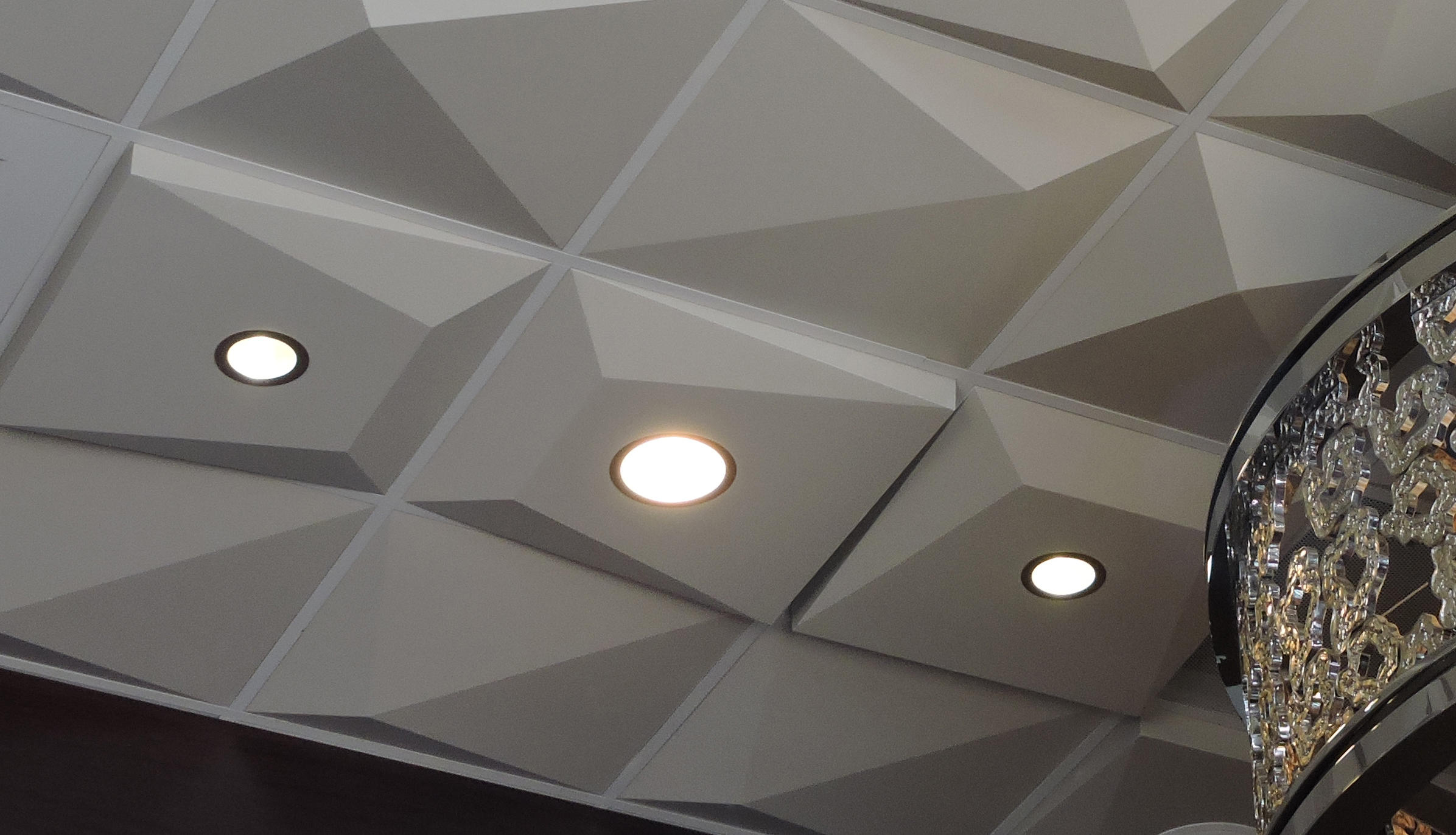
Pick them up and drop new ones in. If they are the smaller ones that staple to the ceiling then just pull them and restaple new ones up. If thy come down hard you can take. The best way is to run them through a table saw with a fine toothed blade.
You can do it with a saber saw with a fine toothed hollow ground blade. The Family Handyman expert, Wade Sides, will show you how to cut custom ceiling tiles and shadow lines along the wall. Recessed drop ceiling tiles are shallower around the edges, allowing most of the panels to hang even with or below the metal grid.
The lip of the tiles grip the grid while the lower-hanging center. In this video I will show you how to measure, cut , and place drop ceiling tiles. If you have any questions, I will answer them if I can.
Oh, and if you found this video helpful, please give it a. For more home-improvement tips and tricks please visit the Family Handyman. Acoustic tiles for drop- ceiling and surface-mount applications are easy to cut with a carpet knife. You can use a standard utility knife, but a carpet knife cuts deeper and more cleanly. Using a steel ruler to carry out a straight line on the tile. Cut the suspended ceiling tiles.
Tiles are softer than glasses so a utility knife or something sharper than it is already enough. In other words, this is how we really cut suspended ceiling tiles. Pros—suspended ceiling and drywall—use their tape measure, utility knife and hands as a cut guide. They extend the blade to whatever the measurement is, then with the other hand hold the tape on the edge of the tile.
I replace a LOT of ceiling tiles in my office building. If you do plan to install a drop-in fixture, place the mark in. Acoustic ceiling tiles are a type of tile used to deaden sound.
They are useful in home offices, nurseries and other areas of the home that need a reduced noise level. Working with acoustic tiles is no different than working with any other types of ties. Making cuts follows the same process. Cutting a metal ceiling tile with scissors can show the unsteadiness of the your hand. If you want a cleaner straight line, use a ruler to mark where you need to cut the metal ceiling tiles.
Simply trace the utility blade over that line. Then use tin snips to carefully cut exactly what you want. Use those measurements to draw and cut the hole using a straightedge or scissors.
Apply glue and place the tile on the ceiling where the fixture will be. Placing the tiles face up keeps fiber tear-out where the cut is not be visible on the finished ceiling. AFter making sure your factory reveals are square take the blade and score the tile along the wall angle.

I found three (3) types of plastic ceiling tiles – they are beautiful and easy to install: On the left is the Genesis Classic Pro Ceiling Tile that fits in grids. To cut them, simply mark and score the face of the tile with utility knife and snap tile at cut. Although most tiles are pre- cut to fit, you may occasionally find that cuts are necessary to fit around fixtures and fittings.
This tool works well to cut the perimeter of mineral fiber ceiling tile to make a recessed edge for a drop ceiling. It will not cut any type of ceramic tile. I highly recommend this tool for cutting the edge into border ceiling tiles. I just finished cutting a number of tiles in a variety of shapes and every single tile has a neat professional look. The cutter certainly cut down on the amount of time it would have taken to get the job done.
A 30-year pro shares his drop ceiling installation tips and demonstrates his techniques that will help you hang a suspended ceiling easier and faster. He shows how to lay it out, fasten grid angles and tees, keep the grid square, and cut the ceiling panels. Merging yard desk that is comprehensive and comfy seats can convert a backyard right into a place dinners. Learn how to cut tin ceiling tiles with guillotine cutters, tin snips or through your local metal shop.
Place ceiling tile on a flat surface and using that measurement scribe a line the entire length of the ceiling tile. Tile should fit loosely but have no gaps. Install ceiling tile and check for fit.
Take the measurements for your first row of tiles (determined in Step 2), and transfer that to the tin ceiling tiles. Use a T-square to make sure your cuts are straight, and cut the tiles with tin snips or a utility knife (Image 1). Use scissors to cut tiles to fit your ceiling. We cut out rounded shapes, to leave room for the light fixture in the center of the room.
Faux tin tiles are very easy to cut , but it is recommended to have a strong set of household scissors to do the job. To cut your tiles to the appropriate size, use your old tiles as templates. For instance, if your old ceiling tile has a hole for a ceiling light fixture, you can just trace the placement of the hole directly onto your new tile and carefully make your cut.
No comments:
Post a Comment
Note: Only a member of this blog may post a comment.